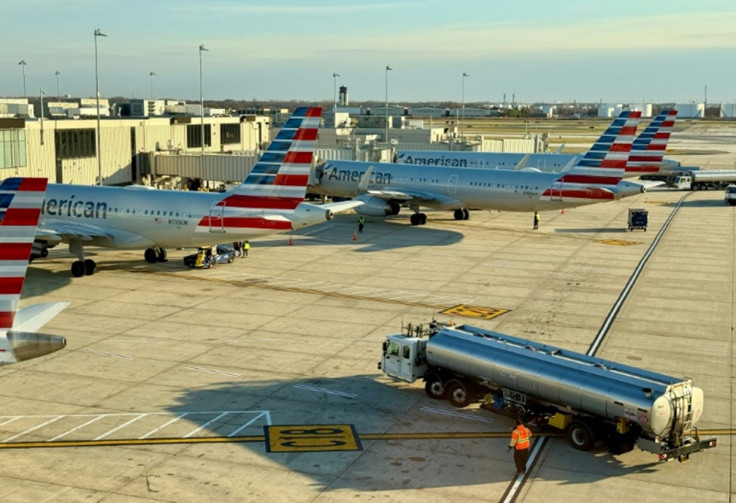Over 1,000 US Flights Canceled Again as Government Shutdown Grounds Air Traffic

KEY POINTS
- More than 1,000 US flights canceled for second consecutive day amid FAA cutbacks.
- Staffing shortages worsen as unpaid air traffic controllers call in sick.
- FAA warns flight cuts could rise to 10% next week if shutdown continues.
US airlines cancelled more than 1,000 flights on Saturday for the second consecutive day, as the Federal Aviation Administration (FAA) continues to scale back operations amid the ongoing government shutdown.
The disruptions, which have affected major hubs across the country, mark one of the most visible consequences yet of the federal standoff that has now entered its fifth week.
The FAA's order to reduce air traffic, first implemented on Friday, has now impacted 40 of the nation's busiest airports. The agency said it would expand the flight cuts from 4 per cent to 10 per cent by next Friday if funding remains frozen.
'We all travel. We all have somewhere to be,' Emmy Holguin, 36, told Politico as she prepared to fly from Miami to visit family in the Dominican Republic. 'I'm hoping that the government can take care of this.'
Major Airports Hit as Delays Spread Nationwide
According to FlightAware, a flight-tracking service, the first two days of restrictions each saw over 1,000 cancellations, with Charlotte Douglas International Airport in North Carolina leading the list at 130 cancelled departures and arrivals by mid-afternoon Saturday.
Atlanta, Chicago, Denver and Newark also reported significant delays and cancellations throughout the day, while East Coast airports around New York City were hit hardest by staffing shortages in radar centres and control towers.
The FAA clarified that not all cancellations stemmed directly from the shutdown order, but analysts warn that the impact could deepen if the agency's capacity reductions continue into Thanksgiving week — one of the busiest travel periods of the year.
Staffing Crisis Adds Pressure
At the heart of the problem are thousands of unpaid air-traffic controllers who have gone nearly a month without pay. The National Air Traffic Controllers Association (NATCA) said many workers are now calling in sick, taking second jobs or struggling to make ends meet.
'Most controllers are working mandatory overtime six days a week without pay,' the union said in a statement. 'Morale is collapsing, and fatigue is setting in.'
Transportation Secretary Sean Duffy warned that the FAA could implement deeper cuts if staffing continues to deteriorate.
'If the shutdown continues, we may have no choice but to reduce traffic further to maintain safety,' he said on Friday.
Stranded Passengers and Ripple Effects
For most travellers, the weekend began with manageable disruptions, but the uncertainty has left many anxious.
'Travel is stressful enough. Then you put these disruptions in place and it really makes everything more challenging,' said Heather Xu, 46, who was flying from Miami to Puerto Rico after a cruise.
Rental-car agencies reported a spike in one-way reservations as stranded passengers sought alternatives, while some families cancelled plans entirely.
Diana Alvear of Bridgewater, New Jersey, decided to scrap her family's trip to California. 'We were worried about controllers being overworked and the risk of being stranded,' she said. 'It's really weighing on our hearts that we had to do this.'
United Airlines offered the family flight credits, but they still lost nearly $700 (£550) on an Airbnb deposit.
Broader Economic Fallout
Beyond travel, experts warn that prolonged disruptions could damage the broader economy. Nearly half of US air freight travels in the cargo holds of passenger aircraft, meaning any sustained slowdown could raise shipping costs.
'Major flight disruptions could bring higher prices that get passed on to consumers,' said Patrick Penfield, professor of supply-chain practice at Syracuse University.
Greg Raiff, CEO of Elevate Aviation Group, added: 'This shutdown is going to impact everything from cargo to tourism to city tax revenues. There's a cascading effect that results from this thing.'
For now, airlines and passengers alike are in a holding pattern, waiting for Washington to break its stalemate before the country's airways grind to a near standstill.
© Copyright IBTimes 2025. All rights reserved.




















